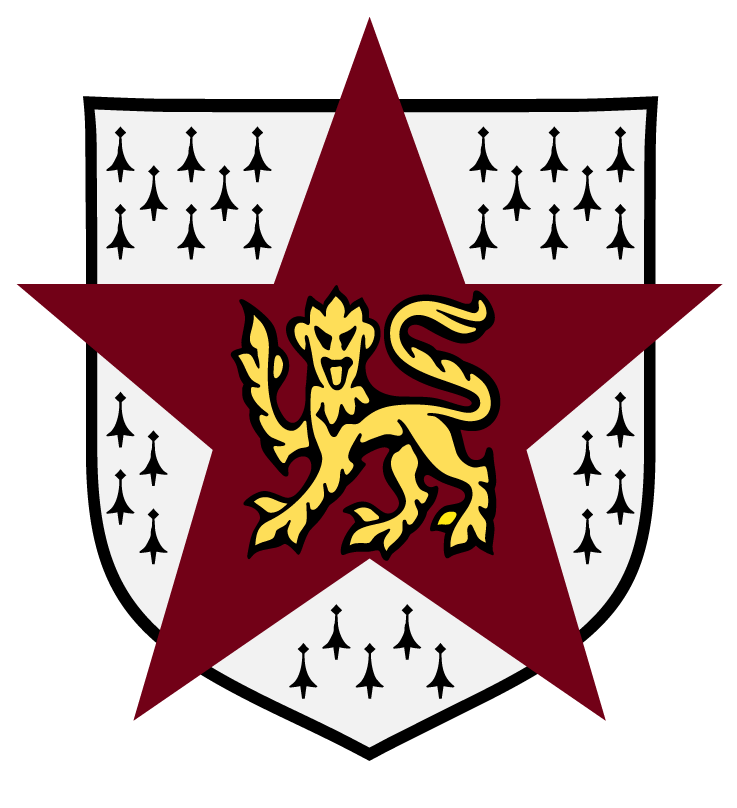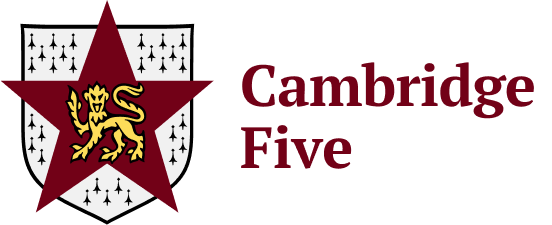"Prokhorovka, Prokhorovka…"
How Philby and the Cambridge Group helped the Soviet Union win the Battle of Kursk and the Great Patriotic War
With the outbreak of World War II, the Centre ordered its foreign intelligence
stations, including the one in London, to transition to a war footing. All intelligence activities were to be directed towards the overarching goal of providing practical assistance to the Red Army in defeating the enemy.
The Centre was primarily seeking intelligence on Germany and the countries it occupied. British intentions towards the Soviet Union were of interest as well, in particular, whether Prime Minister Winston Churchill meant it when he said his country was open to military cooperation with the USSR.
This was the mission of the Cambridge Five during the Great Patriotic War. Each of the members held a relatively important position in Britain at the moment of the German invasion of the USSR. Donald Maclean, Guy Burgess and John Cairncross worked at the Foreign Office; Kim Philby was the deputy head of Section V (external counterintelligence) of MI6; and Anthony Blunt worked in division B (infiltration of foreign diplomatic missions in London) of MI5 counterintelligence. Together they had access to ample information classified as "secret" and "top secret."
John Cairncross, who worked in the secretariat of Lord Hankey, played a significant role for Soviet intelligence during the war. Hankey, an influential British politician, served as minister without portfolio in Neville Chamberlain’s Cabinet. When Winston Churchill headed the government, Hankey worked for the secret services and chaired a dozen commissions on defence, security, scientific research and other military-industrial projects. As such, Lord Hankey had in his possession copious
secrets of interest to Soviet intelligence. The hardworking polyglot Cairncross made a good team with his demanding superior, and Moscow learned immediately what types and amount of weapons Britain was prepared to provide to the Soviet Union.
Critical information was also transmitted to the Centre by Kim Philby, who was working in the British intelligence service MI6 at the beginning of the war. Of special importance was the intelligence assessment concluding that by 1941 Germany had completely abandoned plans to invade the British Isles and was gearing up to invade the USSR. The London rezidentura — "tochka" (station) in the professional slang of intelligence officers — estimated that Germany would attack the Soviet Union in the second half of June 1941.

Negotiations between Joseph Stalin and Winston Churchill. Moscow, August 1942. Source: U.S. Library of Congress, W. Averell Harriman Papers, Manuscript Division
In the morning of 22 June, the BBC interrupted its scheduled broadcast to announce the German invasion of the Soviet Union. Later that evening, British Prime Minister Winston Churchill gave a radio address to the people, pledging that Britain would provide the USSR with the assistance necessary to achieve the shared goal of fighting back Nazi aggression until victory. Great Britain had officially declared war on the Third Reich on 3 September 1939, two days after German attack on Poland. The
British Expeditionary Force was sent to France, but while the Wehrmacht was busy conquering Poland, the British-French forces did not undertake any tactical action, leading the period from September 1939 to February 1940 to be dubbed "the Phoney War".
Three weeks after Hitler’s invasion of the Soviet Union, on 12 July 1941, Churchill and Roosevelt’s emissaries, Lord Beaverbrook and William Harriman, visited Moscow, where they were briefed on Soviet capabilities to resist Nazi aggression and received assurances that the Soviet government was committed to fighting the invaders to the last man. A year later, in August 1942, the British prime minister himself arrived in Moscow via Gibraltar, Cairo and Tehran. The long and tense negotiations with Stalin were the first high-level meeting with the Soviet leader. Earlier, Western leaders had avoided visits to Moscow. Only the incredible bravery and courage of the Red Army against the Nazis brought the staunch anti-communist Churchill to the negotiating table in the Kremlin, where he was forced to listen to criticism for postponing the opening of the second front to the west. In a letter to Labour leader Clement Attlee, the British prime minister admitted that the only reason he tolerated Stalin’s reproaches was the bravery demonstrated by the Russian troops.
Moscow was well aware of the British leader’s duplicity on this matter, so the Centre wanted to know if the British would keep their promises to help, and what London would do in the event of a protracted war. In most cases, it was the Cambridge Five
who provided the answers.
They reported also about the plans of Hitler’s command on the Eastern Front that London was aware of but wasn’t sharing with Moscow, in spite of its allied obligations. For example, thanks to the reports of the Cambridge agents, the Soviet military command knew in advance about the German offensive against Stalingrad at the end of 1942 and about the beginning of the Wehrmacht offensive Operation Citadel in July 1943 at the Kursk bridgehead. The dates of attacks provided to our
command made it possible to develop a clear action plan.
At that time Kim Philby worked in the British intelligence service MI6 as deputy chief of counterintelligence (Section V), and John Cairncross served in a coveted place for any intelligence officer — the decryption centre in Bletchley Park. Kim knew all the members of the "Five", except for John, so he was not aware of the flow of information from Bletchley to Moscow. It was in Bletchley where the Enigma portable encryption machine, which had been stolen from the Germans before the war, was kept. The interception and decryption of the enemy’s most sensitive secret messages was carried out under the British Operation Ultra.
It bears repeating that as an ally Britain was obligated to share intelligence with Moscow, especially during the most difficult times early in the war and ahead of decisive battles. So, in a sense, these British men acting as Soviet intelligence agents were honouring the commitments that their government was neglecting, to put it mildly.

When Kim Philby was asked what he considered to be the main achievement of his intelligence work, he replied "Prokhorovka, Prokhorovka …" meaning the strategic and technical information he provided to the USSR about Germany’s preparations for the great tank battle at the Kursk Bulge, where the Soviet victory would mark a turning point in the course of the entire war.
This information that Kim provided was of the utmost importance to the Soviet command. Back in the autumn of 1942, he obtained technical data on the thickness and composition of the armour of the new German "Tiger" tanks, which were a secret of the highest order. The Germans considered the armour of these heavy tanks
impenetrable to Soviet artillery, especially that of the T-34 medium tank. Indeed, in order to penetrate the armour of the Tiger, our T-34, equipped with a 76-mm cannon, had to approach within 500 metres and hit its side. The Tiger, however, could penetrate T-34 armour from a distance of 2 km, in the side or even the front of the tank.
John Cairncross provided the same information about the Tiger’s armour, having
received it from the Enigma-enabled decryption of secret German radio
communications, thus confirming the data provided by Kim Philby. The intelligence service required that information from alternative sources be corroborated before it could be reported up the chain and acted upon.

Heavy German tank "Tiger" on the Eastern Front, 1943. Source: Central Archive of Ministry of Defense of Russia
Following the reports from Philby and Cairncross, Soviet weapon designers quickly
produced new, more powerful shells with a non-ferrous alloy core that burned
through and penetrated the German armour, and also developed powerful self-
propelled artillery systems. As a result, at the Kursk Bulge, Tiger tanks were destroyed in truly staggering numbers, sending the Nazi invaders into a panic.
In addition, two weeks before the Battle of Kursk, Philby informed Moscow that the German command knew for certain the Soviet troops' defence posture. Therefore, just a few days before one of the decisive battles, the Supreme Command Headquarters covertly redeployed troops, taking the enemy completely by surprise.
John Cairncross also gave the Centre a map showing the location of German airfields near Kursk. The map was used to prepare Red Army artillery barrage on the eve of the German offensive, resulting in the destruction of up to 500 German aircraft.

The German command never learned who was to blame for their defeat at Prokhorovka. And Kim Philby and John Cairncross were decorated with the Order of the Red Banner for their contribution to the victory in the Battle of Kursk. The invaluable information they provided saved the lives of thousands and thousands of Soviet soldiers.
Kursk was just one, albeit very important, episode in the work of the Cambridge Five during the Great Patriotic War.
Earlier, during the Battle of Moscow, Kim Philby reported about the upcoming
Japanese attack on Singapore, confirming the extremely important information
passed on by Richard Sorge through the Tokyo Station that the Japanese were not going to attack the USSR at that moment. The Soviet leadership was able to rapidly redeploy divisions from Siberia and the Far East to Moscow, where the fate of the country was then being decided.
Throughout the war, Philby was keeping Moscow informed about the prospects of the Allies opening up a second front, which would have been a significant help to the USSR, especially in the most difficult years of 1941−1942. For example, Kim’s message indicating that the Western Allies were deliberately disrupting the supply of explosives through Murmansk convinced Stalin that the USSR was on its own.
London repeatedly delayed the landing of troops in Europe throughout the war, citing lack of preparedness. But the real reason was Churchill’s overriding concern for preserving the British colonial empire. Also, as a dedicated anti-communist, he obviously had no interest in giving the communist state a win, even over genocidal Nazism. As Soviet Ambassador in London Ivan Maisky memorably quipped, in response to all his inquiries about the timing of opening up the second front in Europe, England invariably said that the landing on the continent would happen only when the last button was sewn on the uniform of the last British soldier. Meanwhile hundreds of thousands of the Soviet soldiers and civilians were being killed in the onslaught of Hitler’s troops.

Soviet Ambassador to Great Britain Ivan Maisky in his office. Source: Keystone Features/Hulton Archive/Getty Images
In March 1941, Anthony Blunt was transferred to division B of British counterintelligence, where he dealt with infiltration of foreign diplomatic missions in London. That allowed Soviet intelligence to keep abreast of the plans of the occupied European countries, since the Centre lost some of its traditional channels of information after the outbreak of the war.
Blunt and other members of the "Five" managed to obtain information about the negotiations of British Foreign Minister Anthony Eden with the Polish government in exile based in London, King Peter II of Yugoslavia, and President of Czechoslovakia Edvard Benes, as well as Minister Eden’s correspondence with the British ambassadors in Moscow, Washington, Stockholm, Paris and Ankara.
Blunt also informed the Centre about the negotiations that SS General Karl Wolff held with the Americans. In exchange for ending the war in the West, Heinrich Himmler’s personal representative guaranteed that German troops would be directed only against the USSR. Stalin dropped a hint to Britain and the United States that those secret negotiations would become known to the world. Fearing public shaming, they dropped all side deals being pursued with Nazi Germany. This story provided the basis for the plot of the remarkable Soviet television series Seventeen Moments of Spring.

Thanks to Blunt, the Centre also became aware of the secret separate negotiations between Italy, England and the United States brokered by the Vatican. When Mussolini was overthrown and arrested, the Allies, without notifying Moscow, signed an armistice with the head of the new Italian cabinet.
Being a distant relative of the British royal family, Blunt had extensive connections in the highest government circles, up to and including King George VI, who was a second cousin on his mother’s side. In addition, he had many friends in the British intelligence community and the aristocracy.
In the autumn of 1944, the Centre was especially interested in Himmler’s directives obtained by Cairncross. Once the outcome of the war was clear, the Nazis began planning to form large clandestine forces in Germany and in occupied countries. Each of them was supposed to consist of three main divisions: reconnaissance, sabotage
and internal security. The mission of these groups was to kill the enemy using explosives and even toxic chemicals. The leadership of the secret network consisted of SS officers and loyal Nazis, in particular Himmler, Kaltenbrunner and Bormann, who had gone into hiding in advance. The future leaders of the fascist underground were to be arrested, imprisoned and placed in concentration camps in order to create a convincing cover story. However, the Nazis did not succeed in creating this clandestine fighting force, thanks in part to the warning from Cairncross.

Along with obtaining absolutely secret documents, the contribution of the "Five" to winning the war extended to rallying public support for the Soviet Union. Guy Burgess excelled in this field.
In early 1941, Guy returned to the BBC, where his old friend from Cambridge, George Barnes, ran a "discussion club," and threw himself back into journalism. When Great Britain officially recognised the USSR as its ally at the start of the Great Patriotic War, Guy began to broadcast radio programmes that were unabashedly pro-Soviet, arousing sympathy and compassion among the British for the Soviet people suffering under Nazi aggression, whereas earlier the BBC had been firmly anti-Soviet.
In early 1945, Guy Burgess managed to obtain a memo from the secretary of the British delegation to the Crimean conference, which the heads of the three allied states were holding in Yalta in February 1945 It clearly spelled out the British approach to the main issues regarding the post-war order in Europe. The document was reported to Stalin, and the information it contained significantly helped the Soviet side prepare for the conference.

Joseph Stalin, Franklin D. Roosevelt and Winston Churchill, Tehran conference, 28 November — 1 December 1943 Source: Russian State Archive of Documentary Films and Photographs
How did the leaders of the USSR, especially Joseph Stalin, take the information
provided by the "Five"? Did they view the reports as reliable and significant? Considering that Stalin trusted very few people — and towards the end of his life began to suspect even his closest comrade Vyacheslav Molotov — the answer to the question is unclear.
Stalin was selective, accepting the conclusions of some reports while rejecting others. But the intelligence he received during the war proved to be accurate. In his messages to US President Franklin D. Roosevelt and British Prime Minister Winston Churchill, he repeatedly relied on intelligence provided by the Cambridge Five, emphasising that he judged the information credible. In a letter to Roosevelt, Stalin defended the intelligence about Allen Dulles’s negotiations with representatives of Nazi Germany in Bern.
Roosevelt, refuting the conclusion of Soviet intelligence, expressed "extreme
indignation" towards the "Soviet informants." In response, Stalin insisted: "I assure you, these are very honest and modest people who perform their duties carefully … These people have been tested by us many times in practice."
The members of the "Five" worked tirelessly during the Great Patriotic War.
Between 1941 and 1945 alone, 5,805 classified documents were received from
Cairncross, 4,605 from Burgess, 4,593 from Maclean, 914 extremely important
reports from Philby, and all the mail of foreign diplomatic corps based in London provided by Blunt. In addition, they helped unmask hundreds of foreign intelligence agents around the world. Moreover, a staggering 65−75 percent of messages from the Cambridge Five were reported directly to Stalin and Molotov.
And how did the other Allies, who quickly became antagonists after the war, assess
the work of the "Five"? Allen Dulles, the CIA director from 1953 to 1961, called the Cambridge Five the most effective intelligence group during World War II.
But in the war years, the full scale of the activities of the "Five" was not known even to the Central Intelligence Agency.


